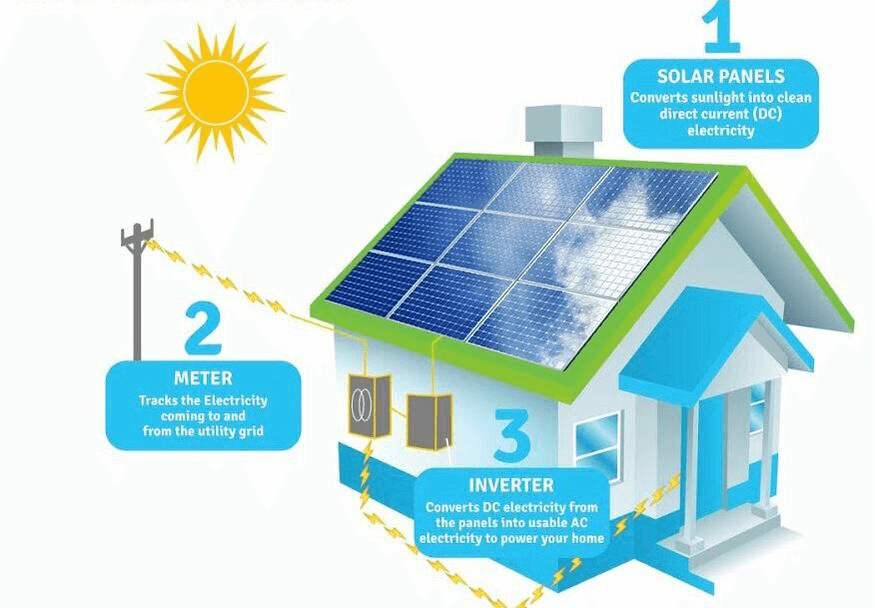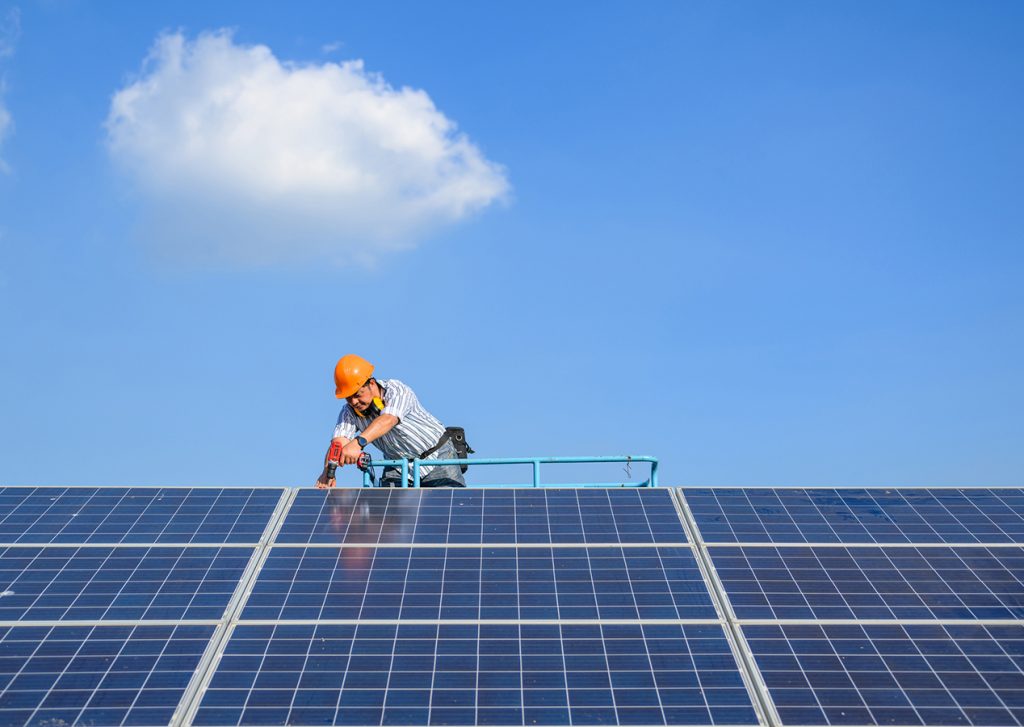Discover Affordable Solar Solutions with Simply Solar Illinois for Residential Needs
Discover Affordable Solar Solutions with Simply Solar Illinois for Residential Needs
Blog Article
Just How Solar Energy Can Aid You Save Money and Lower Your Carbon Impact
The integration of solar energy right into your power profile offers an engaging possibility for both economic savings and environmental stewardship. By taking advantage of the sun's energy, property owners can substantially decrease their regular monthly utility expenses while also safeguarding versus the changability of future power prices. Additionally, the transition to solar adds to a significant decline in carbon exhausts, aligning individual financing with wider ecological goals. As various federal government motivations end up being available, the concern arises: exactly how can one efficiently navigate the first investments and ongoing benefits of solar modern technology to optimize both economic and ecological gains?
Understanding Solar Power Financial Savings
While the transition to solar power often includes a first investment, understanding solar energy financial savings is important for homeowners and services alike. Solar power systems can substantially lower electrical power costs by taking advantage of the sun's energy, converting right into substantial long-lasting financial advantages. By creating their very own electricity, individuals lessen reliance on grid power, which is subject to changing costs. These financial savings can gather over time, frequently leading to a fast return on investment.
In addition, solar power systems might certify for different monetary rewards, including tax credits and discounts, further boosting their cost-effectiveness. The schedule of web metering allows customers to market excess energy back to the grid, developing an added income stream. These elements add to the general financial savings connected with solar power.

In addition to direct financial financial savings, solar energy offers the added advantage of increasing residential property value. Residences furnished with photovoltaic panels are often more attractive to buyers, as they guarantee lower energy costs - Simply Solar Illinois. Understanding these elements is crucial for anyone taking into consideration solar power, as it highlights not simply the prospective monetary gains, however likewise the wider environmental and economic benefits of taking on renewable resource solutions
First Prices vs. Long-Term Advantages
When assessing solar power, it is necessary to consider the preliminary costs versus the long-lasting benefits. The ahead of time financial investment for photovoltaic panels, setup, and related tools can be considerable, typically ranging from $15,000 to $30,000, depending upon the system dimension and home power needs. This first expenditure might hinder some home owners; nevertheless, it is essential to take into consideration the prospective savings gradually.
When installed, solar energy systems can substantially reduce or also eliminate month-to-month electrical energy costs, leading to significant long-term economic advantages. Studies show that property owners can conserve anywhere from $10,000 to $30,000 over the lifespan of their planetary system, normally 25 years. Additionally, many states use incentives, tax debts, and discounts that can balance out first costs, making solar much more obtainable.

Decreasing Your Carbon Impact
Minimizing your carbon impact is an important consideration in today's ecologically conscious society, and taking on solar power is just one of the most efficient strategies to accomplish this objective. Solar energy is a tidy, renewable energy that significantly lessens dependence on fossil gas, which are major factors to greenhouse gas emissions.

Moreover, the widespread adoption of solar technology urges the development of environment-friendly tasks and sustains advancements in energy storage space and performance. The even more people and organizations buy solar power, the better the collective decrease in carbon emissions, promoting a cleaner atmosphere for future generations.
Federal Government Rewards and Discounts
Adopting solar energy not just benefits the atmosphere but can additionally result in substantial financial savings, particularly with the availability of government incentives and official site discounts. Various federal, state, and regional programs are made to encourage home owners and services to spend in solar power systems, making the shift a lot more budget friendly.
One of the most famous incentives is the Federal Investment Tax Credit Report (ITC), which permits planetary system proprietors to deduct a substantial portion of the setup expenses from their government tax obligations. This motivation has been crucial in reducing the in advance expenses linked with solar power systems. In addition, several states supply their very own tax obligation credits, gives, and discounts that can further enhance savings.
Furthermore, some city governments provide real estate tax exceptions for solar installments, making certain that home owners do not deal with boosted real estate tax as an outcome of their renewable resource investments. Energy firms may also offer motivations, consisting of web metering and feed-in tariffs, which permit solar power users to market excess power back to the grid.
Selecting the Right Solar System
Selecting the ideal planetary system is vital for taking full advantage of energy performance and monetary benefits. The choice rests on several elements, including power requirements, spending plan, and offered space. Home owners must begin by assessing their electrical energy consumption to establish the system size needed for optimum efficiency.
Next, take into consideration the different kinds of solar technologies readily available. Simply Solar Illinois. Photovoltaic (PV) panels are the most usual, converting sunshine directly into electricity, while solar redirected here thermal systems concentrate on home heating water. Each kind has unique benefits depending upon specific demands
Spending plan factors to consider are likewise extremely important. First installation expenses can differ considerably, so it is very important to contrast quotes from multiple carriers and explore financing alternatives. Federal government incentives and refunds can better lower the economic concern, making planetary systems a lot more obtainable.
Verdict
The ecological advantages of solar energy add to lasting practices essential for combating climate adjustment. Federal government rewards enhance the feasibility of solar technology adoption, encouraging a change in the direction of a cleaner, much more economically reliable power source.
Report this page